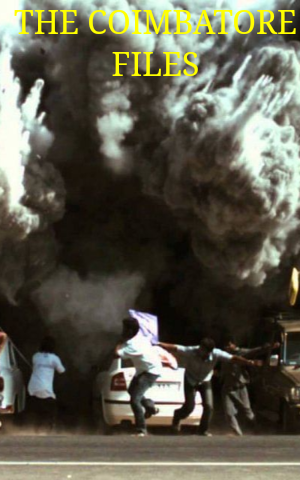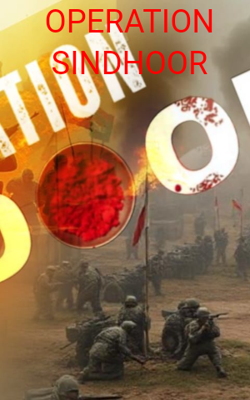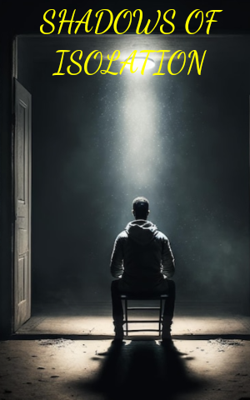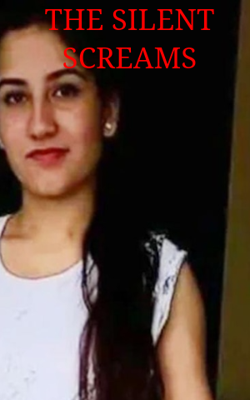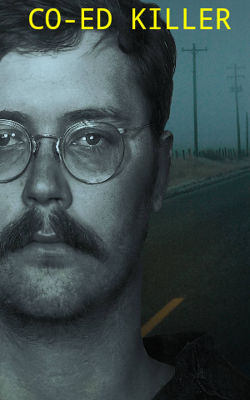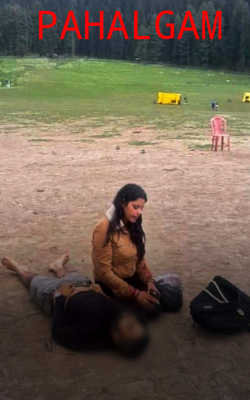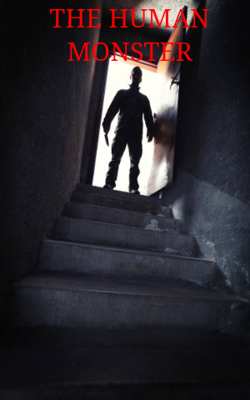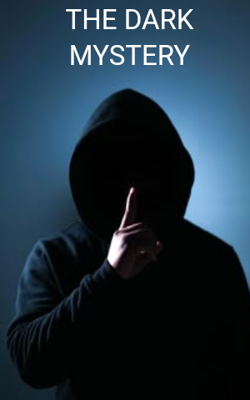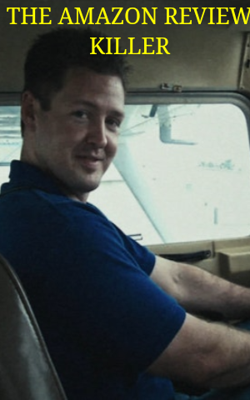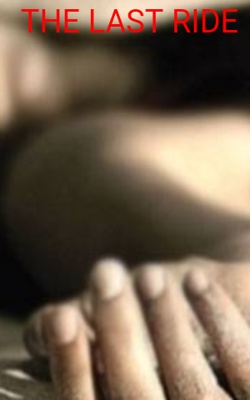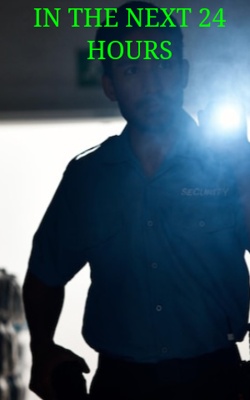THE COIMBATORE FILES
THE COIMBATORE FILES


Note: Though it is an anthology story, based on 1993 and 1998 Coimbatore blasts, it is a story based on the author's fiction. It does not apply to any historical reference. I use the Rashomon effect of Narration, inspired from the film Rashomom.
2022:
PSG COLLEGE OF ARTS AND SCIENCE:
12:15 PM:
The time is around 12:15 PM. It is the last exam for Sai Adhithya, a post-graduate MBA student in PSG Tech. After completing his semester exams, he was very keen to meet his HOD Professor Uma Swasthika to discuss about an important topic, related to his hometown Coimbatore district. After completing the exams, he goes to meet her and asked, "Excuse me mam. May I come in?"
Looking at him, she said: "Yes. Come in please."
She asked him, "And Adhithya. How did you do your exams today?"
"I did it well mam." He was silent for a while. Searching for words, he said: "Mam. I am working for an untitled story based on 1993 to 1998 Coimbatore blasts. For that, I like to do a proper research mam. That's why I came here to seek your help." Thinking for a while, she said: "I will give you a list of people, I know. You can go and ask about this blasts." She said and gave him the contact numbers and their address.
RANGE GOWDER STREET, COIMBATORE:
Adhithya went to the first person named Shafequee Suhail. He is living in Range Gowder street of Coimbatore. Meeting him in the house, he introduced himself as the college student of PSGCAS. Aftermath, he said additionally: "Sir. I have came here to investigate about 1993-1998 Coimbatore bomb blasts."
"Are you Uma mam's student?"
"Yes sir." As Adhithya said, Suhail looked at a few photos of Coimbatore. He said about the events, that have completely shattered the peace of Coimbatore.
PART 1:
1997-1998: THE BLACK YEAR-
Surrounded by beautiful waterfalls and the Western Ghats , filled with people speaking a sing-song uber-politeness and offering a pleasant spring-like weather through the year, Coimbatore, was and still as idyllic as one could find a city to grow up in.Perhaps, that’s what shocked everyone the most when this was shattered in 1997–98. Had it been a city that was ravaged in the past, perhaps, we’d have all moved on like it was normal business. But the way it shattered the quiet, tranquility of the city was petrifying.
The violence that hit my hometown was the culmination of simmering discontent and growing animosity fabricated between Hindus and Muslims that had long regarded each other warily since the Babri Masjid demolition. It was also the result of some deft manipulation by organizations on either side which stood to gain from it.And yeah, they did gain to a large extent. The major support for one National party in this part unlike rest of the State is one classic example for the same.
Eventually, it was a one small trigger — like it always is — that propelled the descent into madness that winter. Some youth stabbed a police constable. As it happened the youth were Muslim and the constable was Hindu. The ticking bomb of communal violence exploded.All hell broke loose in the days that followed.With violence in the air, the police rallied around each other and raided roadside shops and decimated them. Reports suggest that Hindu extremists joined the fray and there was unabashed looting and burning of many small shops in the area.
My dad’s wholesale shop at Rangai Gowder Street did face the heat.Around that time, several Muslim youth began protesting about the cop’s raid of the previous evening. Many parts of the city became a battleground. The police, a large section of whom were already protesting and staying away from duty, joined in battle, in the name of crowd control. The result was catastrophic. 19 Muslims were killed in the city by the arguably indiscriminate police in concert with Hindu militants in the pogrom unleashed. The very famous Shobha Textiles was burned down to the ground that day. Hundreds of other shops were looted, burned and viciously attacked. It was field day for criminal elements from both sides to wreak havoc.
Little did everyone know that this was just a teaser to the horror that was yet to strike Coimbatore. The reasons, politics and religion as always, started to flow around the horror. The blasts were intended to target the LK Advani rally that was scheduled for the previous evening in the city. The first of the serial bombs on February 14 exploded at 3.50 p.m. on Shanmugham Road in R.S. Puram, barely 100 metres from the venue of the election meeting that was to be addressed by the then BJP President, hero of the peace journey Rath Yatra. Over the next 40 minutes, blasts were reported on West Sambandam Road, Gani Rowther Street at Ukkadam, at a textile showroom on Big Bazaar Street, a shopping complex near the main bus stand at Gandhipuram, the vehicle parking lot at the Coimbatore Junction railway station, the Coimbatore Medical College Hospital (CMCH),few more places. It was also meant to target the Hindu areas and the commercial arteries of the city. Revenge for Babri Masjid. Or the communal conflagration that happened months before. Or something long in the works. No one knew clearly. The Might is always Right here.
The central reserve force, rapid action force and swift action force all landed in Coimbatore and began combing the city for explosives. A huge haul of explosives and deadly weapons was found.The ensuing days of fright, the car bomb, a cable operator from the neighborhood spotting a suspicious van in the dead of the night and giving it a chase, the all-night vigil that followed that incident, the citizen patrol by turns every night, the presence of Rapid Action Force everywhere in the city, etc. They also prevented a major communal conflagration from starting in the city that could have turned ugly. Much later, reports would emerge on how the Hindus and Muslims had actually helped each other during this strife.
But the saddest aftermath was how this left Coimbatore permanently crippled. After 18 long years,the city may have emerged out of the repercussions of those four months, but the city’s rapid march as a major commercial power in India was halted by the brutal impact the riots and the blasts created. It had all the ingredients to become a leading city in the country (geographical location,great education infra, pleasant climate,no big political stalwarts,solid middle class, entrepreneurs in droves and a pluralistic society which loved commerce).
At present, Adhithya felt bad about the tragic death of Muslim people in the riots. He consoled Suhail and went on to meet the next person Rajendran in Avarampalayam. He too have been informed by Adhithya's professor about his research. After having a coffee, Adhithya asked him about the blasts.
Rajendran said: "Adhithya. I am an ex-Colonel in Indian Army. We had fought various terrorists in the border and even fought wars. But, we didn't know the counter-terrorism that existed in the city of India."
PART 2- NOVEMBER 29 1997- SELVARAJ'S MURDER:
The killing of Selvaraj was one singular incident that led to the polarisation of Coimbatore on communal lines. Al Umma cadres stabbed Selvaraj on the night of November 29 when he was regulating traffic at Kottaimedu, a Muslim-majority area. Earlier that day, Sub-Inspector M. Chandrasekaran of Bazaar police station near Kottaimedu detained Jehangir, an Al Umma office-bearer, and two other Muslim youth for riding on a motorcycle without a driving licence. Mohammed Ansari, who was then Al Umma State secretary, went to the police station and demanded their release. A row broke out between the S.I. and Ansari, with the latter threatening to “break Coimbatore in two”.
About an hour later, four Muslim youth stabbed 31-year-old Selvaraj, who was totally unconnected with the earlier incident. Al Umma men wanted to target a policeman because its members had been detained at the police station and Ansari was “humiliated” at the police station. Ironically, Selvaraj had stepped in to relieve another traffic constable.
The death of Selvaraj infuriated the police force. They struck work the following day and demanded the arrest of the assailants. They alleged that the Dravida Munnetra Kazhagam (DMK) government did not allow them to take action against Al Umma. They were also infuriated by the fact that four policemen and prison officers had been stabbed or murdered in Coimbatore and Madurai by Muslim extremists in the 18 months preceding the murder of Selvaraj. The policemen’s families also staged dharnas, demanding security for the law-enforcers. The situation was so grave that the government called out the Army and the Rapid Action Force to bring back normalcy to the city.
At present, Adhithya asked Rajendran: "Sir. Why didn't the government ban Al-Umma organization?"
Thinking a while, he said: "Those 1998 Coimbatore blasts occurred due to pro-terrorist policies of the DMK Government. Before those blasts, there were clashes in November 1997 there."
PART 3- POLITICAL BACKGROUND:
There was a trend on Twitter “#RahulLovesTerrorists” after Rahul Gandhi referred to Masood Azhar as “Masood Azhar ji”. However, the actual pro-terrorist policies of the Congress have been far more dangerous and serious than a mere mention of ‘Ji’. Sam Pitroda’s statement trivializing the Pulwama attack and disapproving the airstrikes too appears to be nothing as compared to other dangerous actions and statements of the Congress Party, its leaders and its allies like the DMK.
There were devastating bomb blasts in Coimbatore on 14 February 1998 which killed 58 people and nearly killed L K Advani, who had a miraculous escape as his flight was delayed by over 90 minutes. The then Congress President Sitaram Kesri made a ridiculous and bizarre allegation at that sensitive time, blaming RSS for the blasts.
After this, the RSS sued Sitaram Kesri and there were reports that he denied having made the allegation. But he then denied having denied the allegation and stuck to his charge. An incident like the deadly Coimbatore blasts nearly killing Advani and killing 58 people, many of whom were BJP workers also was not enough to infuse humanity and the Congress made such a reckless, insensitive and inhumane statement. Not just that, the party fully backed this charge. The Tamil Nadu unit president of the party said: “If the bomb was planted by somebody other than the BJP, they would definitely have killed Advani. Because it was planted by them, they purposely delayed Advani’s meetings.”
That’s not all. The Islamic radicals who carried out these bomb blasts belonged to the Al-Umma and the TNMMK. After these blasts, the Congress actually allied with Tamil Nadu Muslim Munnetra Kazhagham (pronounced ‘Kalagham’, ‘la’ like in Tamil) – a party involved in these Coimbatore blasts after the blasts- in 2004, 2006 etc. The TNMMK used to contest polls directly earlier. In Feb 2009 it formed a separate political wing called Manithaneya Makkal Katchi (MMK).
At present, Adhithya was really shocked with the political masterminds behind the attacks. Now he asked in further: "Did the government banned Al-Umma sir?"
"It was not banned by the DMK till the 14 February 1998 blasts. The DMK Government banned Al-Umma only after the blasts. There was a Gokulakrishnan Commission appointed to probe the Coimbatore clashes of Nov 1997 and the blasts."
The Gokulakrishnan Commission of Inquiry blames security lapses for the explosions.
The report comes down heavily on the police for their failure to search the Babulal Complex building on Tirumal Street before the blasts even though they had information about the clandestine movement and storing of bombs by “terrorist groups” at an abandoned building near Saravana Metal Mart. If they had searched and combed the nearby area, they would have unearthed the plot by Al-Umma men, arrested the terrorists and seized the bombs prior to February 14. This would have aborted the conspiracy, the report says.
Swift action by the police in the early hours of February 15 led to the unearthing of the plot to create terror in Coimbatore, the arrests of Al-Umma cadres and the seizure of detonators and lethal weapons. “The major part played in this storming operation” by Sub-Inspector M. Chandrasekaran “at the risk of his life” not only saved the lives of police personnel and the public but became “an eye-opener to the Special Investigation Team to nab the terrorists and unearth the concealed bombs.
Sai Adhithya's face shrunk for a while. His face started to sweat since he is getting several shocking truth about his hometown. He felt ashamed that, he didn't know the truth of his own district. Looking at Rajendran he asked him: "Sir. Why didn't the police took any action against the government?"
"The Police, of course, wanted to take action but were prevented by the DMK Government from doing so, before the blasts. Even Frontline blamed the DMK Government for not preventing the Coimbatore blasts. It said: “The crackdown initiated by the Tamil Nadu Government following the blasts was doubtless effective, but it could not absolve it of the criticism that it had failed to prevent the terrorist attack by acting on intelligence reports and following up on earlier seizures of explosives. It seems fair to state that the DMK Government failed to differentiate between the large mass of innocent Muslims and the small number of fundamentalist Muslim leaders who have exploited and preyed on the feelings of insecurity among innocent Muslims. It should have shown a greater sense of urgency in isolating the hardcore of Muslim fundamentalists and taking action against them.”
Thanking Rajendran, Adhithya goes on to meet another person Janani in Kempatti colony. Upon seeing her, he was extremely shocked. Since she was his childhood friend, whom he have saw during the blasts far away when his father rushed to escape from the attacks.
For a while, Adhithya was emotional. Later, she went near to her. Janani recognized him and emotionally embraced him. Wiping off her tears, she said his mam had informed her about his research. She said about the events that she have saw in Kempatti Colony.
PART 4- KEMPATTI COLONY:
Kempatti colony, a not so famous area. It didn't became famous even after two bombs detonated in the locality and the violence that followed.
Janani was 5–6 years old at that time. She still remember lot many incidents clearly. There was total mayhem everywhere. The problem started with a police officer(Sub-Inspector Chandrasekharan) stopping a bike with three people and taking them to police station, but Selvaraj was stabbed to death in retaliation for not releasing them.
After bomb blast, the events were bloody in the locality. Just to narrate one incident, Janani and her mom were walking from theirngrandparent's home to their house. It was some 250 meter walk. Janani's mom was pregnant with her sister. Suddenly, a bottle filled with petrol and set alight was thrown from somewhere, it landed just before them. Her mom was hurt in her eye and was bleeding. She can't even move from there quickly.
A cycle nearby caught fire and was burning. Janani could see a group of 15–20 people shouting something, and they had a tray containing many such bottles. Though she was a kid, she clearly know what they would do with that. Just one week before one small child was made to drink petrol and set on fire. Those scenes were horrific and no human would do it. And she saw one of her friend, her schoolmate senior to her, lying dead in the street and his mother crying holding his head in her lap.
These scenes even if you see in film would make you cry but she saw them in reality. She stood there in the middle of the street crying with her helpless mother and those bastards were busy throwing those bottles inside a house. Janani thought she is going to die as the road became deserted in seconds. People were walking and within a second everyone got in and locked their doors.
Her mom was tapping on everyone's door to let us in, but no one opened as everyone are scared. Luckily they found a small place in between two houses and stood there for sometime. After sometime, someone saw them from inside the house and signalled us to come to backside and then they got in.
This is just one such incident. Everyday was like life and death situation in those days. Men from their area routinely patrolled the area to check anyone is coming at suspecting hours. Even then they would come in bikes throw glass bottles and sped like a arrow. Janani was always kept inside the house as there was rumour that they are kidnapping children. Like Adhithya's family, many from their area moved out to different cities which became a norm in other areas too.
"Our area was under army control as recent as 2005. And now there are still paramilitary men standing at opponakara street junction. And even today there is some kind of uneasiness in ukkadam-kottamedu area." Janani now said to Adhithya.
Wiping off his tears, Adhithya asked her: "Finally, what is justice for all these atrocities Janani?"
PART 5: AFTERMATH OF 1998 BLASTS:
The Opposition has accused the Government of failure to anticipate the violence and the blasts and take preventive steps…Stung by criticism, the Government took some decisive, though belated, action against those suspected to be behind the blasts. It ordered a ban on two Muslim fundamentalist organisations, Al Umma and the Jehad Committee. Some of their leaders, including Al Umma President S.A. Basha were detained.The chief minister’s (Karunanidhi’s) stern warnings to them were followed by raids on several extremist hideouts on February 15. Eight people arrested in the raid were later identified as Al Umma activists. Post-blast violence too was swiftly contained with the deployment of the Army and paramilitary forces.
Intensified patrolling proved fruitful on February 16, when the police found 60 kg of explosives in a car in a residential area. It took two days to defuse the bombs…The extremists’ menace had been looming large for quite some time in the state, but political compulsions prevented the state Government from taking decisive action. Police sources in Coimbatore say the Government was well aware of the movement of Muslim fundamentalists, but fearing a minority community backlash during the polls, it delayed action against them.
The charges seem to have rattled the ruling combine in the state, and fearing electoral repercussions, it has roped in actor Rajnikanth for damage control. In repeated telecasts on the DMK-owned Sun TV, the celluloid superstar has blamed the BJP and Jayalalitha for fomenting trouble. He said the blasts were the handiwork of those interested in an AIADMK-BJP government at the Centre. Congress President Sitaram Kesri has squarely blamed the RSS for the blasts. Denying the charge, however, the RSS has filed a defamation suit against Kesri.
The timeline of the Coimbatore blasts and the belated action taken by the police and recovery of huge quantity of arms and explosives and arrests of Islamic radicals can be seen here. It shows that the DMK government could have easily done that much before the blasts, but it allowed terrorist organizations like Al-Umma to function due to its pro-Muslim policies.
However, the DMK Government at least banned the Al-Umma and took action after the blasts, but the Congress continued to defend the terrorists even after the blasts and instead accused RSS of carrying out the blasts.
Most political leaders and parties expressed shock and revulsion over the blasts. The then President K.R. Narayanan and Prime Minister I.K. Gujral expressed shock over the bombings, DMK president and TN Chief Minister M. Karunanidhi said the blasts were part of a conspiracy by foreign forces to disrupt the electoral process. The then Union Home Minister Indrajit Gupta and CPI(M) general secretary Harkishan Singh Surjeet too said that they suspected a foreign hand behind the blasts. Gupta blamed the ISI for attempting to disrupt the election process in India. But the Congress stooped to an unimaginably low level even in this case.
The DMK came to power in Tamil Nadu in May 1996. Towards the end of 1996, G. Bhoopalan, a warder in the Coimbatore Central Prison, was killed by Muslim militants, in a petrol bomb attack in the prison. The RSS office bomb blast in Chennai in August 1993 during AIADMK rule which killed 14 people including 6 high-level pracharaks, resulted in a crackdown on fundamentalist organizations, especially the Al-Umma by the AIADMK Government. But under the DMK rule. 16 Al-Umma men who had been detained under TADA for their alleged involvement in this RSS office blast of August 1993 and for possession of weapons were released on bail in January 1997 when the DMK Government prosecutor did not oppose their bail.
The complacent policy continued even after Tamil Nadu police commandos, following a tipoff, seized a huge cache of explosives (gelatin sticks), detonators, iron pipes, PVC pipes, alarm clocks, cables, wires, soldering equipment, saws and testers, all of which are used in the making of bombs. The seizure took place from a house at Kodungaiyur, a suburb of Chennai, on March 11, 1997. The police arrested two fundamentalists belonging to the Al-Umma group: Mohammed Khan alias Sirajuddin (26) and Shahul Hameed alias Aftar (22). Mohammed Khan is the brother of S.A. Basha, one of the founders of Al-Umma.
A series of bomb explosions had convulsed Tamil Nadu in November-December 1997, just two months before the Coimbatore blasts. Blasts shook the Cheran Express, the Pandyan Express and the Alleppey Express trains on December 6, 1997, the anniversary of the Babri Masjid demolition. The police said that the Islamic Defence Force of Kerala, a shadowy outfit, was behind these explosions, which killed nine persons.
On January 10, 1998, a blast occurred under the Anna flyover in the heart of Chennai, and the Islamic Defence Force claimed responsibility for this. This was followed by a powerful blast in a rice mill at Saliyamangalam, near Thanjavur, on February 8. The police seized a big cache of explosives and detonators from the mill. Police investigation revealed that Abdul Khader, son of the mill owner, Abdul Hameed, was connected to Muslim fundamentalist organisations. Both the owner of the mill and his son were arrested. Abdul Khader was seriously injured in the blast. Then came the seizure of hundreds of detonators from Vepery and Tambaram in Chennai, from two Muslims connected with militant organisations. Here, the police seized about 84 gelatin sticks, 50 kg of sulphur, 11.5 kg of ammonium nitrate, 100 detonators, two country pistols, and bottles containing nitric and sulphuric acid.
There was no crackdown, let alone ban, on Al-Umma even after all these blasts and acts, not even after the 8 February blast. These indications and warnings of big trouble failed to make the State Government act firmly. It was a significant failure of preventive action.
Banned fundamentalist outfit Al-Umma president SA Basha openly threatened to kill the then Gujarat Chief Minister Narendra Modi if he visited Coimbatore in July 2003. The open warning was given by Basha and 8 others while talking to journalists in the Coimbatore court premises after they were convicted and sentenced to life imprisonment in a case relating to the murder of a Hindu Munnani leader. Such a man with his organization Al Umma was allowed to function openly by the DMK Government till the 14 February 1998 blasts.
Though the DMK was forced to act against Islamic radicals after the Coimbatore blasts, and it did not follow an openly pro-terrorist policy from 1999 to 2003 during the period of its alliance with the BJP at the Centre, it went back to its true nature 2004 onwards. It again got the support of TNMMK for 2004 Lok Sabha polls and also for the 2006 Assembly polls in Tamil Nadu, which it won. Barely two weeks after it was sworn in in May 2006, Tamil Nadu’s DMK government ordered that cases be dropped against 12 Muslim fundamentalists, all followers of Kichaan Buhari, an Al-Umma sympathizer and key accused in the Coimbatore serial blasts.
Now, Janani gives a diary in which she have written about the final verdict of Coimbatore blasts to Adhithya. He starts to read the diary.
FINAL PART- THE FINAL VERDICT:
Ayurvedic massages for Abdul Nasser Mahdani paid for by taxpayer, wife facing arrest warrant has free access, no checks
One man has reason to laugh at all the tough talk on the need to crack down on terror: Abdul Nasser Mahdani, key accused in the 1998 Coimbatore serial blasts that targeted BJP leader L K Advani and killed 58 people and left several more injured.
For, ever since he (Karunanidhi) was sworn in as Chief Minister, the atmosphere has been upbeat in the high-security prison here, housing Mahdani and 166 Al Umma prisoners, mostly arrested for the Coimbatore blasts. Thanks to Karunanidhi, a team of 10 masseurs and four senior Ayurvedic doctors began their “high quality treatment” on Mahdani, who has been housed in the prison’s hospital wing since 2001…
While the prison manual says that a prisoner pays for the cost of any private medical treatment he avails, the Tamil Nadu government is using taxpayers’ money to pick up the bill for Mahdani’s “dhara” and “pizhichil” (the ayurvedic massages)…
But what has infuriated investigating officers in the blast case is the move by the Chief Minister’s Office to quietly lift the ban under Section 268 CrPC, restricting Mahdani’s movements within the prison.
“Soon after the DMK came to power, there were attempts to move him out of the prison and get him treatment outside, preferably in Kerala. We strongly resisted such a move. With a friendly government in Kerala, we can never hope of seeing him again, particularly when the trial (in a special court) is likely to end in three months’ time and a verdict is expected soon,” pointed out a senior police officer on the condition that he be not named…In fact, in the pre-blast days, the DMK, then ruling Tamil Nadu (1996-2001), was accused of flirting with Muslim militancy and turning a blind eye to the activities of Jehadi groups like the Al Umma.
Though the DMK was forced to act against Islamic radicals after the Coimbatore blasts, and it did not follow an openly pro-terrorist policy from 1999 to 2003 during the period of its alliance with the BJP at the Centre, it went back to its true nature 2004 onwards. It again got the support of TNMMK for 2004 Lok Sabha polls and also for the 2006 Assembly polls in Tamil Nadu, which it won. Barely two weeks after it was sworn in in May 2006, Tamil Nadu’s DMK government ordered that cases be dropped against 12 Muslim fundamentalists, all followers of Kichaan Buhari, an Al-Umma sympathizer and key accused in the Coimbatore serial blasts.
“…Senior Policemen in Thirunelveli were shocked by what they termed the DMK Government’s ‘blatant sympathy’ for the Muslim fundamentalists. Obviously, the accused committed the offence with the grave intention to create law and order problems and disrupt peace in Tirunelveli district, known to be communally sensitive. Also, all of them have links with Muslim fundamentalist outfits. The government should have allowed the law to take its natural course. For a new government to resort to such a move is rather demoralising for the police force,” said a senior police officer in Tirunelveli.
Police officials say that in one of the cases, Crime No. 15 of 2001 registered at the Melapalayam police station, while two of the five accused were juveniles and let off given their age, the other three, including M S Syed Mohammed Buhari, Sheik Hyed and Jafer Ali had “admitted to the offence”. “Despite this, the government ordered the withdrawal of cases against them,” an officer said… There are also allegations that the ruling DMK was bending backwards to appease its electoral ally, the Tamil Nadu Muslim Munnetra Kazhagam (TMMK). A section of the police believe that the dropping of the six cases by the DMK government could be part of a pre-poll deal with the TMMK.”
The TNMMK was not just the DMK’s alliance partner, it was also of the Congress. The Congress too was a part of the Democratic Progressive Alliance (DPA) alliance in Tamil Nadu with DMK and hence TNMMK was its partner too. It is one thing to ally with a mainstream party whose ‘some members’ may have been guilty of involvement in terrorism in the past while the party, on the whole, is sensible, but it is quite another to ally with a radical pro-terrorist party & release terrorists and withdraw cases against them due to pressure of that party. [At that time, DMK had 97 MLAs out of 234 in the Tamil Nadu Assembly with the Congress having 33. DMK-Congress had a comfortable majority without needing the support of any other allies, and TNMMK did not have a single MLA, though it supported the DMK-led Congress allied DPA.]
This misplaced sympathy for the sake of vote banks was the reason behind the DMK government’s refusal to appeal against the acquittal of Abdul Nazar Madani in the 1998 Coimbatore blasts case.
The Congress Legislature Party passed a resolution in the Kerala Assembly in 2006 demanding release of Abdul Madani who was in a Coimbatore jail from 1999 onwards. This was also supported by the Left, the Kerala Legislative Assembly passed this resolution unanimously on 16 March 2006 with not a single MLA opposing it. Madani was later also the accused in the bomb blasts in Bangalore in 2008 at the time of an IPL game. After a resolution demanding his release in March 2006 [The resolution was before his acquittal] and his subsequent release on 1 August 2007 after his acquittal in the Coimbatore blasts case, he again was involved in another attack in 2008.
Adhithya concludes that, "The events of Coimbatore blasts have many facets and cannot be clubbed into a single narrative." Henceforth, he decides to name the story as, "The Coimbatore Files" implying that, "he have planned to write these events as a document."




















